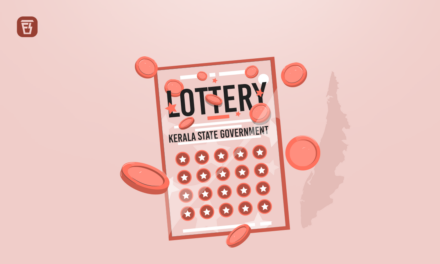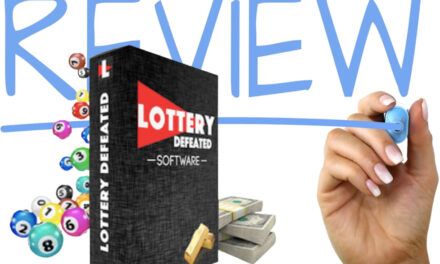Everyone dreams of winning the lottery. The idea of a life-changing windfall for the cost of a ticket is irresistible. But as we all know, the odds of winning are pretty steep. Still, it doesn’t stop millions of people from trying their luck. So, is there any strategy to increase your chances, or is it all just down to luck? Let’s break it down.
The Odds Are Not in Your Favor
First things first: the odds of winning the lottery are extremely low. For massive lotteries like Powerball or Mega Millions, your odds of hitting the jackpot are roughly 1 in 300 million. To put that into perspective, you’re more likely to get struck by lightning (about 1 in 15,300) than to win a major lottery.
But what about smaller lotteries? Even state lotteries offer slim chances, though they tend to be better than the national games. It’s important to understand that the lottery is designed to favor the house. That means most players will lose money over time, but that doesn’t mean you can’t have fun playing.
Scratchers: A Different Beast
Scratch-off tickets, or “scratchers,” are another popular way to play the lottery. These are often more accessible, with instant results, and sometimes smaller but more frequent payouts. Many players hope to beat the odds with these quick games.
However, our own test, where several participants played scratcher games, showed that winning is still rare. Most participants didn’t win anything, though one person did walk away with $5—up by $2 after buying a $3 ticket. In the end, scratchers can be entertaining, but they’re no guaranteed win either. Like any lottery game, they favor the house.
Pick Unpopular Numbers to Avoid Sharing
When playing big lotteries like Powerball or Mega Millions, you want to maximize your chances of keeping the jackpot all to yourself—if you win. While you can’t change the odds of your ticket being the winning one, you can try to avoid splitting the prize.
Many players pick numbers based on personal dates, like birthdays. Because numbers between 1 and 31 are often popular due to this habit, it might be a good idea to choose numbers outside of this range. You could also avoid common patterns, like sequential numbers or picking straight columns on your ticket. While this won’t increase your odds of winning, it might help you avoid sharing the prize.
Is It Worth Playing Every Combination?
One theoretical way to guarantee a win is to buy every possible combination of numbers. While this might sound appealing, it’s rarely practical. For a game like Powerball, you’d need to buy around 300 million tickets, costing you roughly $600 million. Even if the jackpot were enormous, the logistics of purchasing that many tickets would be a nightmare. Plus, if someone else also wins, you’d have to split the prize.
That said, smaller state lotteries have seen syndicates (groups of players) attempt this strategy. In some cases, they’ve succeeded, but it’s still risky. You could invest millions and still end up sharing the prize with others.
Some States Offer Better Odds
Not all lotteries are created equal. Some state lotteries have better odds than others. This is especially true when fewer people are buying tickets. For example, in Oregon in 1999, there was an $18 million jackpot, but not many tickets were sold. If you had bought a ticket in that drawing, your odds of winning would have been better compared to larger, more popular lotteries.
Look for lotteries with bigger prizes but fewer players. These opportunities are rare, but they do exist. Economists have mapped out certain states and times where the odds of winning, while still low, offer a higher rate of return on your investment.
What About Scratchers with Too Many Prizes Left?
Occasionally, a scratcher game doesn’t sell all its tickets before many of the smaller prizes are won. In this case, the remaining tickets may actually have better odds of containing one of the remaining prizes. Some websites, like scratch-off-odds.com, track how many prizes are still available for specific games. Checking these resources might help you find a game with better odds, though it still doesn’t guarantee a win.
Should You Try Betting Systems?
There are betting systems out there that claim to increase your chances of winning smaller lotteries. For example, some recommend betting on repeated digits in a four-digit game. The logic is that, with fewer possible combinations, your odds improve. But even with these strategies, your chances are still quite low. In most cases, the payouts from these bets won’t outweigh the money you’ve invested.
In rare cases, like the famous story of Marge and Jerry Selbee, players have used a more sophisticated approach to winning smaller lotteries. By carefully selecting games like the Massachusetts Cash Windfall, they managed to exploit a loophole in the game’s structure, winning millions. However, opportunities like this are extremely rare and often get shut down once they’re discovered.
Enjoy the Dream, But Keep It Realistic
At the end of the day, winning the lottery is mostly about luck. Sure, there are a few small strategies to avoid sharing the jackpot or to pick games with slightly better odds. But for the most part, the lottery remains a game of chance.
So, is there a way to guarantee a win? Not really. The best advice is to treat playing the lottery as a fun activity. Buy a ticket for the thrill of it, but don’t expect to hit the jackpot. For many people, the fantasy of winning is worth the price of admission, even if the odds are stacked against them.
Just remember: the lottery should be entertainment, not a financial plan.





